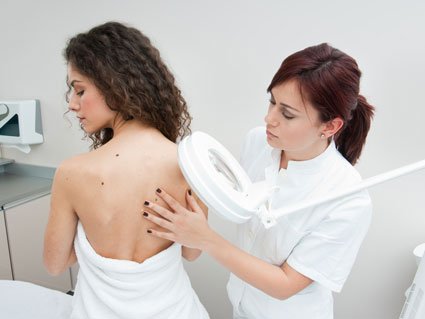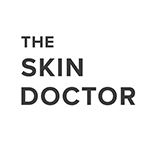- Home
- The Services
How to reduce your risk of skin cancer
Secondary prevention of skin cancer
Many of my patients have multiple skin cancers. The most important things to do are still sun avoidance and regular use of sunscreen whenever outside.
There is some evidence for other treatments which may reduce your risk of developing further skin cancers.
Vitamin B3 (Niacin, Nicotinamide)
The main evidence is for vitamin B3, also known as Niacin or Nicotinamide. This may help reduce melanoma risk (but the evidence is not too strong). The evidence is stronger that it significantly reduces the risk of developing the more mild skin cancers of Basal Cell Carcinoma, Squamous Cell Carcinoma and even reduce precancerous lesions of Actinic Keratosis.
Taking 500 mg of Vitamin B3 twice a day may reduce your risk of developing skin cancers by up to 30%. You should follow your doctor’s advice as to whether this is right for you. I generally recommend Vitamin B3 to my patients after their second skin cancer, as at that stage it is quite likely they will develop many more over-time.
You should talk to your doctor if you are pregnant or breastfeeding.
Vitamin B3 is well tolerated. Side effects can include (but are very rare when used at the doses I recommend)
- Flushing of the skin
- Itch
- Dizziness
- Diarrhoea
- Liver function test abnormalities
If any of these occur, stop taking vitamin B3 and speak to your doctor.
Vitamin B3 can interact with some other medications – in my experience at the dose recommended this is very rare. This can include interactions with:
- Allopurinol (a medication for gout) – your dose may need to be increased by your doctor
- Statins (a medication for high cholesterol) – combination with Vitamin B3 may increase the risk of side effects from the statin.
- Zinc – may increase the risk of skin flushing from vitamin B3.
This is not an exhaustive list, and you should discuss your individual situation with your treating doctor.
Vitamin D
There is a growing weight of evidence that vitamin D is a very important thing we need in our body. It has been proven to promote strong bones and strong muscles, particularly in the elderly. Low vitamin D has been linked to a range of illnesses, ranging from many cancers through to heart disease. Association (or being linked) is not the same as causation however – it could be that for example, healthier people tend to have higher vitamin D, and also tend to be healthier so get sick less often. An association does not 100% mean that increasing vitamin D levels will decrease your risk of these illnesses. You should speak to your doctor.
Some studies have shown an association between melanoma and low vitamin D. To be fair others have said the opposite and the evidence is not clear at this point.
You should follow your own doctor’s advice.
In general, I advise strict sun avoidance to my patients, especially if they have had multiple skin cancers. This of course will potentially lead to lower vitamin D levels, as we get much of our vitamin D from the sun.
My advice to my patients is to consider eating foods high in vitamin D content or consider supplementation of vitamin D (e.g. one or two tablets or 1,000-2,000IU daily).
Fish are an excellent source of vitamin D – including Salmon, Tuna, Sardines and Cod Liver Oil.
You should discuss this with your doctor. In my opinion, vitamin D levels don’t generally “need” to be checked in this setting. If they are checked, I try to aim for a vitamin D level over 75mmol/L. Your doctor’s opinion may differ, and you should discuss this with them.
What is Gardasil / HPV Vaccination
Gardasil-9 (and earlier versions) are vaccines targeting α-human papillomaviruses (HPVs), especially types known to cause genital warts and certain cancers (cervical, anal, etc.). They are not specifically designed for skin cancer or precancerous skin lesions, but recent research has explored whether HPV vaccination might help reduce skin lesions and skin cancers, especially in high-risk or immunocompromised individuals. PMC+2Wiley Online Library+2
Evidence for Reducing Actinic Keratosis (AK) Burden
The VAXAK trial (immunocompetent adults with many AK lesions) showed that people who got the 9-valent α-HPV vaccine had significantly greater reductions in AK lesion counts compared with a sham vaccine. For example, at 6 months the vaccinated group had a ~47% median reduction vs ~29% in the sham group; at 12 months the difference remained significant. JAMA Network
Vaccination also reduced the number of thick AKs. JAMA Network
So in relatively short-term follow-up (12 months), vaccination showed benefit in reducing existing AK burden in people who already had many of them. JAMA Network
Evidence for SCC (and Other Skin Cancer) Risk Reduction
There are case reports of immunocompetent patients who received HPV vaccination and then had markedly fewer new SCCs (and BCCs) in the period after vaccination compared to before. For example, in one report of two patients, after quadrivalent vaccine the rates of new SCCs dropped by 62-66%. PMC
In immunosuppressed adults with recurring keratinotic lesions (which include AK, Bowen’s disease, etc.), systemic α-HPV vaccination (Gardasil-9) was associated with fewer dermatologic interventions and reduced incidence of keratinocyte carcinomas in cohorts studied. Wiley Online Library
There is also a report of an elderly patient whose cSCCs regressed (tumor shrinkage or disappearance) after a combination of systemic + intratumoral HPV vaccine use. Wiley Online Library+1
Limitations and Unknowns
Many studies are small (case reports, small cohorts) or short duration. That limits how confident we can be about long-term prevention of SCC. PMC+2JAMA Network+2
In the VAXAK trial, while AK lesions dropped, there was no statistically significant difference in new keratinocyte carcinomas (including SCCs) over 12 months. So far, impact on actual skin cancer incidence is less certain. JAMA Network
Also, mechanisms are not fully understood: which HPV types (α vs β), how much HPV is involved in skin cancers in the general population, how immune response is modulated in sun-exposed skin, etc. MDPI+1
Possible Mechanisms
Some proposed mechanisms for how HPV vaccination could reduce AK or SCC risk:
Immune boosting: The vaccine might enhance T-cell (especially cytotoxic) immunity that recognizes HPV-infected or HPV-antigen expressing keratinocytes in sun-damaged skin. This could help clear or suppress premalignant lesions. JAMA Network+1
Cross-reactivity / viral antigen expression: Some AKs and SCCs appear to have HPV (especially β-HPV types) expression or markers; even though Gardasil targets α-HPVs, immunomodulation might have a beneficial effect. PMC+2Wiley Online Library+2
Practical Considerations
Gardasil is generally safe and well tolerated. No major safety concerns in studies of its use for this purpose so far. JAMA Network+1
It may be more helpful in people with high burden of AKs, or those with prior SCC or immunosuppression, but more data is needed before making definitive recommendations.
It does not replace other preventive measures: sun protection (sunscreen, clothing), regular dermatological surveillance, treatment of existing lesions.

